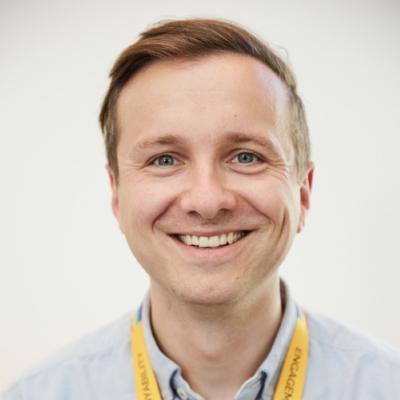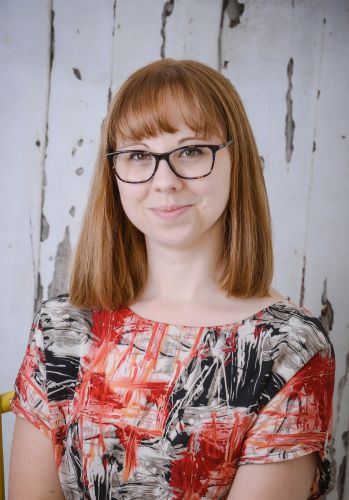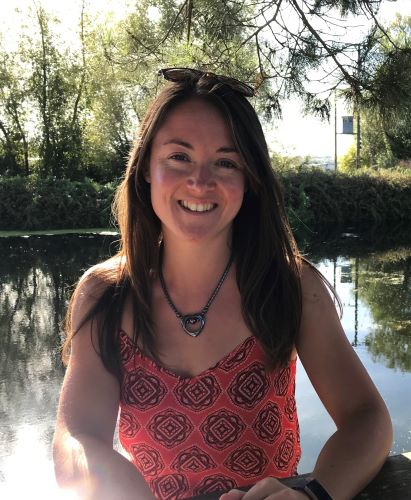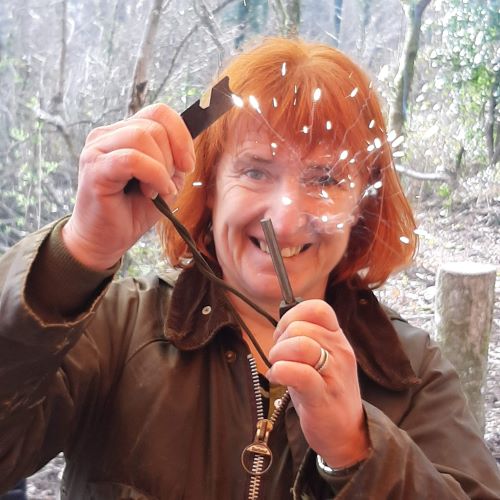Education has evolved and continuously changed over the years, but the pace of change has accelerated in recent times. The enhancement of technology has made it possible for learning and teaching to take place in person, online or through hybrid learning, as well as drawing into question the way in which written assessments are/can be used. Students who are taking their studies during a cost of living and mental health crisis, now expect their education to be offered with more choice and options to make this a personalised experience. Prior to the advent of widely available AI language models, there had been a move away from high stakes examinations towards more authentic assessment but the advances in the field of AI pose challenges to this. Our increasingly diverse student bodies need to be prepared for this world of change which will impact on all future employment roles as well as the way they engage with the wider world. This conference will enable us all to share initiatives to support these changes and continue to develop and deliver quality education.
https://elearningindustry.com/9-things-shape-future-of-education-learning-20-years (accessed 05/09/23)
https://www.rmit.edu.au/study-with-us/education/discover-education/the-future-of-learning-and-teaching-big-changes-ahead-for-education (accessed 05/09/23)
We are very much looking forward to seeing many of you at our first face to face event since the pandemic, which is taking place in SEDA’s 30th anniversary year.
The call for proposals is now closed.
Thursday 9th November: Tom Lowe
Tom Lowe is a Senior Lecturer in Higher Education at the University of Portsmouth, where his research includes student engagement in development of education, embedding employability into the curriculum and supporting student belonging. Tom is also a Senior Fellow of the Higher Education Academy and Chair of the RAISE Network – an international network of over 1,000 members researching student engagement. Prior to Portsmouth, Tom was the Head of Student Engagement and Employability at the University of Winchester and Programme Leader of the MA Student Engagement in Higher Education. Tom has recently published a book titled “Advancing Student Engagement in Higher Education: Reflection, Critique and Challenge” as part of the SEDA Series with Routledge Education and has worked as an advisor across more than 40 universities and sector bodies internationally.

Friday 10th November: Kelly-Louise Preece, Eleanor Hodgson and Karen Kenny, University of Exeter
Kelly-Louise Preece is the Head of Educator Development at the University of Exeter. During her 15-year career in Higher Education she has held roles as an academic, researcher and researcher developer. From 2015-2022 she led the Researcher Development Programme for PGRs at the University of Exeter, taking a holistic and inclusive approach to Researcher Development, designing training programmes and learning inventions that support the researcher as a person. In 2022 she was awarded a National Teaching Fellowship in recognition of my excellent and sector leading support for PGRs.

Dr Eleanor Hodgson is a Senior Educator Developer at the University of Exeter. Eleanor is a Fellow of Advance HE, and through her role directing Exeter’s experiential route to fellowship she supports educators across the institution to reflect on and develop their practice. Her other interests include supporting student progression and engagement through assessment as learning and active feedback. Her work exploring assessment practice for Exeter’s ‘Assessment Reimagined’ project has led her to consider the potential for Generative AI to act as a catalyst for change within Higher Education, and to identify mechanisms for helping colleagues to rethink their assessment practice.

Dr Karen Kenny is a Senior Educator Developer at the University of Exeter. Her main focus is on supporting academic tutors across the institution. Karen is a Senior Fellow of Advance HE, and Chair of the UKAT Curriculum Management Group, managing the development and delivery of tutor training to UKAT member institutions. She has a strong interest in the use of technology to enhance practice, and has followed the development of AI, in order to help colleagues to harness the affordances of these tools.

View conference PowerPoint presentations
< Drag table left or right to see more information >
| DAY ONE – THURSDAY 9th NOVEMBER | |||
| 09.30 – 10.15 | Registration, Roundhay Lounge | ||
| 10.20 | Keynote on main conference theme Stepping back and thinking holistically about students’ engagement in their higher education, Tom Lowe, University of Portsmouth Roundhay 1 | ||
| 11.30 | Parallel sessions – workshops (45 mins) | ||
| 11.30 | Workshop 1 Roundhay 1 | Workshop 2 Roundhay 2 | Workshop 3 Roundhay 3 |
| How are staff supported to undertake student-staff partnership opportunities, Dan Axson, University of Sussex | Co-Creating your AI response with students, Abbie King & Fiona Wilkie, UCL | Transforming students into inclusive curriculum developers, Tamara Reid & Gabriela Viana Brasileiro, Kingston University | |
| 12.20 | Workshop 4 Roundhay 1 | Workshop 5 Roundhay 2 | Workshop 6 Roundhay 3 |
| Student Voice and Partnership: building integrity and authenticity into our curriculum change ambitions, Sophia Bourne, University of Leeds | Surfacing and embedding academic skills in the curriculum, Maddy Mossman, Jiani Liu & Emily Webb, University of Leeds | What next for graduate attributes? Exploring institutional approaches to embedding graduate attributes in the curriculum, Steph Fuller, Queen Mary, University of London | |
| 13.05 | Lunch, Roundhay Lounge | ||
| 14.05 | Parallel Sessions – various | ||
| 14.05 | Lightening talks 1 (7-10 mins x 6) Roundhay 1 | Workshop 7 Roundhay 2 | Workshop 8 Roundhay 3 |
| Mentoring Graduate Teaching Assistants, Thomas Rodgers & Claudia Henninger, University of Manchester | Beyond belonging – building mattering into programme design, Rebecca Hodgson, University of Manchester | Explore, Innovate and Enhance Student Employability and Well-being with Inspiration from a New-Model HEI, Bertie Knight & Gary Wood, New Model Institute for Technology and Engineering | |
| 14.15 | Dynamic Models of Staff Development: Sharing Good Practice, Dr Maggie Scott, University of Salford | ||
| 14.25 | Balancing student assessment loads: A critical re-evaluation of programme assessment strategy, Wesley Doorsamy, University of Leeds | ||
| 14.35 | Step up to presentations – the PPCP approach, Laura Dyer, University of Leeds | ||
| 14.45 | Preparing for the workplace: The [continued] need for student guidance to use social media safely and professionally, Alison Purvis & Sue Beckingham, Sheffield Hallam University | ||
| 14.55 | Engineering and Mathematics in SHU: Cultural change and the journey to towards PBL assessment, Vicky Mellon & Joel Gray, Sheffield Hallam University | ||
| 15.05 | Coffee, Roundhay Lounge | ||
| 15.25 | Parallel Sessions – various | ||
| 15.25 | Research papers 1 (20 mins + questions) Roundhay 1 | Workshop 9 (60 mins) Roundhay 3 | |
| Enabling staff to showcase innovation in any format: Research findings from the application of a flexible summative assessment on a PG Cert HE, Joanne Brindley & Tom Lowe, University of Portsmouth | Programme Leaders: co-creating support through community development, Neil Ford, University of Southampton | ||
| 15.55 | A comparative sentiment analysis of human-generated and machine-generated educational content and their differential impact on students experience and learning, Gary Fisher, Dean Fido & Paula Shaw, University of Derby | ||
| 16.20 | The Practical Skills Passport: supporting student lab skills and confidence post-lockdown, Anna Smith, University of St Andrews | ||
| 16.45 | Day One summary and close, Roundhay 1 | ||
| 17.45 | Drinks and canape reception (to celebrate SEDA Roll of Honour awardees and SEDA’s 30th Birthday) Mezzanine | ||
| DAY TWO – FRIDAY 10th NOVEMBER | |||
| 09.30 | Opening Address and Keynote AI-lluminating the path to authentic assessment: generative AI as a catalyst for change in assessment practice, Kelly-Louise Preece, Dr Karen Kenny & Dr Eleanor Hodgson, University of Exeter Roundhay 1 | ||
| 10.30 | Coffee, Roundhay Lounge | ||
| 10.45 | Workshops (60 minutes) | ||
| 10.45 | Workshop 10 Roundhay 1 | Workshop 11 Roundhay 2 | Workshop 12 Roundhay 3 |
| Using Generative AI to create scaffolded formative assessment activities, Sue Beckingham, Sheffield Hallam University & Peter Hartley, Edge Hill University | Beyond Blended….., Shelia MacNeil, Helen Beetham & Elizabeth Newall, JISC | The Inclusive Higher Education Framework, Katherine Hubbard & Paul Gawthorpe, University of Hull | |
| 11.50 | Workshop 13 (60 mins) Designing with Emotion in Mind: Embedding wellbeing into courses with Universal Design for Learning, Kevin Merry Roundhay 1 | ||
| 12.50 | Summary and Conference close, Roundhay 1 | ||
The conference will take place at the Crowne Plaza Leeds, Wellington St, Leeds LS1 4DL.
You can book a place on the conference via our Eventbrite site.
Accommodation is not included in the ticket price but the Crowne Plaza can offer our delegates overnight accommodation at a rate of £140 per night. In order to book you should ring the hotel directly on 0113 261 6848 and state that you are attending the SEDA conference. You can pay on arrival but will be required to give a card when booking to guarantee your bedroom. The hotel will hold these rooms until the 19th of October. The rate includes breakfast and use of the gym and pool.
In addition there are many other hotels within a short walk of the Crowne Plaza.
Prices:
SEDA members – Whole conference (all day on day one, evening reception on day one, half day on day two – accommodation not included) – £355
SEDA members – Day one only – £235
SEDA members – Day two only (half day) – £130
Non SEDA members – Whole conference (all day on day one, evening reception on day one, half day on day two – accommodation not included) – £400
Non SEDA members – Day one only – £260
Non SEDA members – Day two only (half day) – £145
Evening reception on day one – £25
Member prices are available to individual and associate members plus everyone employed in a SEDA member institution.